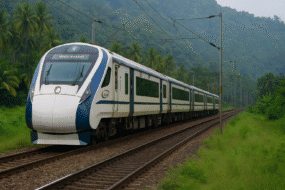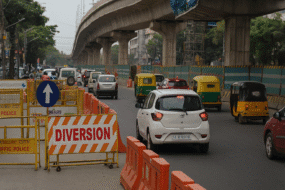Sri Lanka has officially turned down a proposal from India to build a land-based transport corridor linking the two countries, effectively shelving plans for a road and rail bridge across the Palk Strait. The long-discussed project, which has resurfaced several times over the past two decades, was recently reintroduced during bilateral talks. However, Sri Lankan authorities have expressed serious reservations, citing a mix of ecological, economic, and geopolitical reasons for not moving forward.
According to senior government sources in Colombo, while the idea was briefly discussed, it was not a major agenda item in the recent diplomatic meetings. The Indian government presented the proposal as part of its broader vision to improve regional connectivity under initiatives like BIMSTEC (Bay of Bengal Initiative for Multi-Sectoral Technical and Economic Cooperation). The proposed bridge was also positioned as a sustainable alternative to sea and air travel, potentially reducing the carbon footprint of transport between the two nations.
However, Sri Lankan officials are approaching the matter with increasing caution. Infrastructure experts in Sri Lanka have flagged serious concerns about the environmental consequences of constructing a land bridge. The region in question — especially the Gulf of Mannar and Ram Setu area — is ecologically sensitive and home to coral reefs, fish breeding zones, and migratory bird habitats. Any major construction could threaten the fragile marine ecosystem, which is also protected under biosphere reserve status.
Environmental sustainability is not the only hurdle. The financial implications of such a large-scale infrastructure project have also drawn skepticism. Sri Lanka is still recovering from a recent economic crisis, and officials have pointed out that high-investment foreign-backed initiatives require rigorous cost-benefit analysis and careful planning. A senior infrastructure planner in Colombo noted that while increased connectivity could benefit trade and tourism, it should not come at the cost of ecological degradation or economic strain.
There are also concerns about the potential political and strategic fallout. With growing geopolitical competition in the Indian Ocean Region, particularly the expanding influence of China through port and maritime infrastructure, Sri Lanka is keen on maintaining its strategic autonomy. Any move to create a permanent land link with India would need broad political consensus and public support—both of which appear to be lacking at present.
Interestingly, this is not the first time such a proposal has been declined. Similar initiatives in the early 2000s failed to gain traction due to lack of consensus and feasibility concerns. Even after a 2023 joint statement hinted at improving connectivity, there has been little concrete progress.
While India remains hopeful about advancing regional transport links, Sri Lanka seems more inclined to explore less invasive alternatives like expanded ferry services, green shipping routes, or aviation reforms. The decision reflects a more cautious and sustainable approach to regional development, highlighting the importance of environmental protection and sovereign decision-making.
For now, the land bridge remains a vision postponed—pending better alignment of economic capability, ecological safety, and geopolitical strategy.





